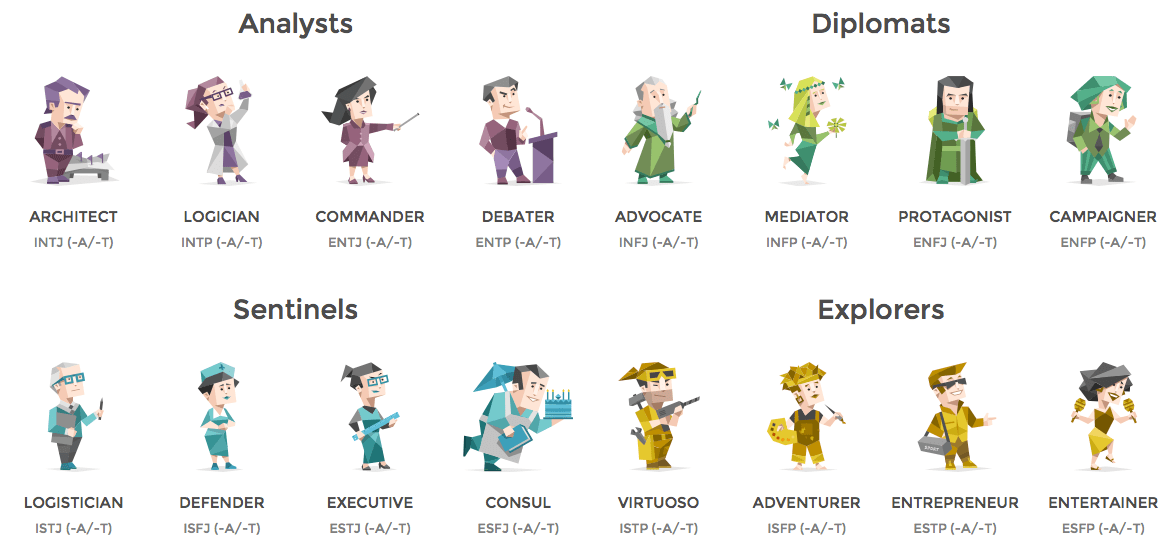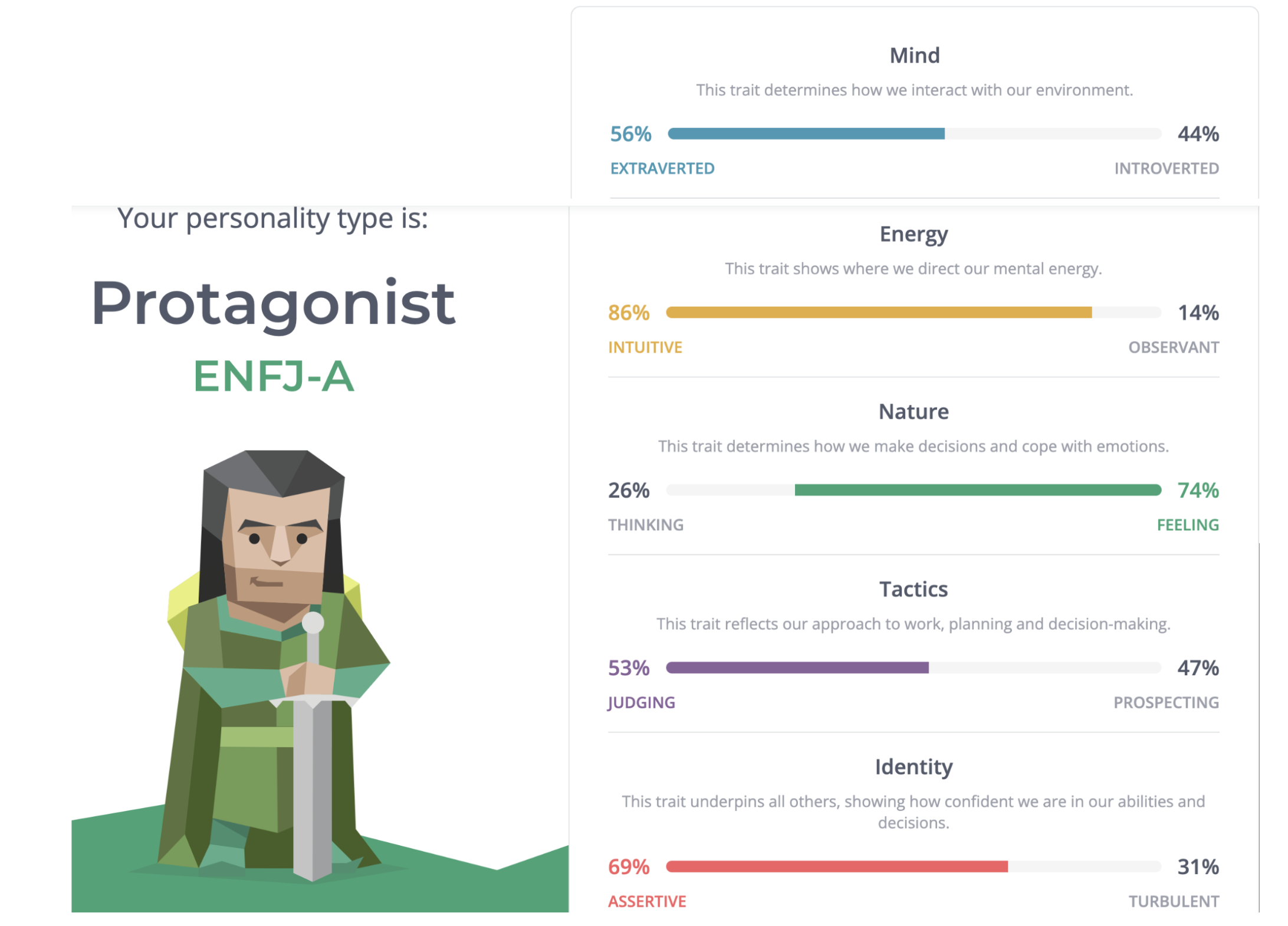4 Personality and Values Quizzes
Image credit: The “16 Personalities” Myers Briggs test version
Myers Briggs Personality Quiz
The Myers Briggs personality quiz is one of the most popular personality surveys out there, which asks questions such as “You become bored or lose interest when the discussion gets highly theoretical” in order to categorize your personality by 4 main sub-components, and gives one of 16, 4-letter readings, such as ENFJ-A (my reading).
A key difference in the Myers Briggs vs Enneagram is that Myers Briggs tends to focus a bit more on a person’s nature — or innate, characteristics from birth.
Carl Jung’s extroversion vs introversion brainchild, which assesses how we derive our energy (i.e. from other people vs alone)
Sensing vs intuition, which assesses how we take in information (i.e. from the physical senses and the world vs internal, abstract thought)
Thinking vs feeling, which assesses how we make decisions (i.e. from the head vs heart)
Judging vs perceiving, which assesses how we organize our worlds (i.e. whether we prefer to lead more planned vs spontaneous lives)
Enneagram Personality Quiz
The Enneagram personality quiz is another highly popular, yet more nuanced to interpret personality survey out there, which asks questions such as “I work hard to be helpful to others” in order to categorize your personality into one of 9 types, based on your core beliefs/motivations/fears, and overall worldview.
A key difference in the Enneagram vs Myer’s Briggs is that it focuses on both a person’s natural temperament AND nurture — or upbringing and formative period influences.
The Enneagram has 3 core groupings of personality:
Gut/instinct (type 8, 9, 1) — instinctual types
Heart/feeling (type 2, 3, 4) — sensitive types
Head/thinking (type 5, 6, 7) — analytical types
For example, my primary type is 2: The Helper (caring, interpersonal:
generous, demonstrative, people-pleasing, and possessive).
DISC Assessment
The DISC assessment is another popular, primarily used in the professional world, , which asks questions evaluating a person’s self-identification with statements like “I am bold,” in order to establish your pattern amongst 4 primary quadrants of personality (Dominance, Influence, Stability/Steadiness, and Cautiousness/Compliance), as well as 2 additional poles (reserved vs outgoing, and task vs people-orientation).
As opposed to focusing on nature or nurture, the DISC assessment focuses on both, and moreover a person’s conscious behavior aspirations.
For example, I am mostly an Influence type, who is people-oriented and outgoing.
Take the DISC assessment (the full version is paid)
Image credit: DiSC Profile
Personal Values Quiz
The following is a survey that I developed after researching values, which uses a visualization exercise to enable you to evaluate your own personal values from a set of 30 value choices (with space to add any important qualities you feel are missing).
For instance, my personal values include: Resilience, Freedom, Creativity, Curiosity/learning, Growth, Exploration, Diversity, Love/kindness, Appreciation, Integrity/ethics
You can take the survey by answering the questions via this link (your results will be emailed to you)



